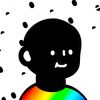The Founding Story of The DAO Book
Our Bull Case for DAOs
Rolf: DAOs, to me, are not so much about the actual noun of DAOs as an organization. They're much more about the verb. I'm more interested in how DAOs have changed the way that we organize and how DAOs change behaviors among people who come together to achieve some common goal.
DAOs leverage something in technology that we could never leverage before, in a way that actually impacts social groups and how they organize. Organization prior to DAOs couldn't leverage cryptographic guarantees. These cryptographic guarantees did not exist before the invention of distributed peer to peer networks i.e. Bitcoin, Ethereum, and other layer 1s. These cryptographic guarantees enable types of organization that were difficult, if not impossible to form before.
The simplest example is a shared bank account which multiple people control. Opening a bank account for one person is challenging. You need to submit various documents. And depending where you're applying, those documents need to be translated. It often takes weeks, if not months, to open a globally functional bank account supporting multiple currencies. But, things are different now. You can create a single address on a blockchain within literally one minute and spend literally two more minutes sharing control among multiple people at almost no cost using tools like Gnosis Safe.
From a financial perspective, the entire crypto market capitalization was around $10 billion total in 2016. Today, it's a trillion plus dollars. It went up 100x. Now, take DAOs. DAOs didn't really exist two years ago. Today, they manage a combined $10 billion total. I think that if we wait another five years, we'll probably see DAOs managing a trillion plus dollars. Speculation aside, the financial interest signals the relevance DAOs have for how we do and will organize.
See Eun: DAOs are to organizations what Decentralized Finance is to Finance. The modern corporation was created a long time ago. It has evolved in the meantime, but it hasn't evolved all that much. We have this unique opportunity to take all the properties that are useful in crypto such as open, borderless, censorship-resistant to create programmable organizations and coordinate across borders. DAOs influence all facets of organizations: resources, growth/evolution, hiring/firing etc. We can mobilize our human resources and capital, and then redeploy them in different ways to solve the most important problems of our world in ways we only imagined were possible.
There are certain technologies such as artificial intelligence and cryptographic applications such as DeFi that aim to take humans out of the interactions. DAOs seek to maximize human interactions in crypto to help humans make better decisions for those decisions to have a bigger impact on the world.
Why Are We Writing The DAO Book?
We want a good framework for thinking about DAOs.
Our focus is first on understanding as opposed to making predictions. We don't even know what DAOs are, let alone predict what will or will not be a successful DAO. If we don't know the basics how can we start to compare whether or not something is better in situations other than speculation?
At the moment, there's no disciplined way of conversing about DAOs. DAOists use the same words when what they mean are different. If we can build a shared lexicon around DAOs, we believe it'll help us get the next 1 million people into crypto and DAOs.
Our goal isn't about finding the "right" framework. We welcome arguments against our emerging framework. Our goal is to accelerate the conversation around DAOs and figuring out how we can use DAOs rather than existing alternatives to build a better world. If we can articulate and crystallize the value propositions for why DAOs enable a world that is better than if DAOs didn't exist, then that's worth a lot.
Our Journey So Far
We've made several pivots.
Originally, we envisioned that our book would be succinct and feature a whole bunch of DAOist interviews. We wished to leverage our unique advantage that 1) both of us are active in DAOs and 2) we have access to people that feed us stories on the ground. We assumed there would be a common sentiment around coordination failures to tie the interviews together.
Nothing is as easy as it seems. Pockets of DAOists shared the sentiment but it wasn't something that was true across all DAOs. The market was too early for there to be any theory, and our approach would need to be fully inductive rather than deductive. We wanted to start from the manifold problems DAOists face today.
Over the next few weeks, we'll be pushing out a series of blog posts, each of which is going to reflect on one idea that we think about deeply, typically triggered by or discussed with DAOist(s). The focus is not for each of them to perfectly cohere from the get-go, and perfectly cumulate. Rather, the focus is to stay rooted and anchored with our claims by providing concrete examples of what's happening on the ground in the DAO world and putting ideas in opposition to each other. A few weeks later we'll start looking back and start contemplating about ways to organize our thoughts and ask: how do we arrange these different ideas, each rooted in reality, in ways that reveal a bigger picture?
Sign up for the newsletter. Comment. Tell us how and why are we wrong, and what we're missing. Our intention is for this to be a journey that we're on together. Come along for the ride and let's see where this goes.


Comments powered by Talkyard.